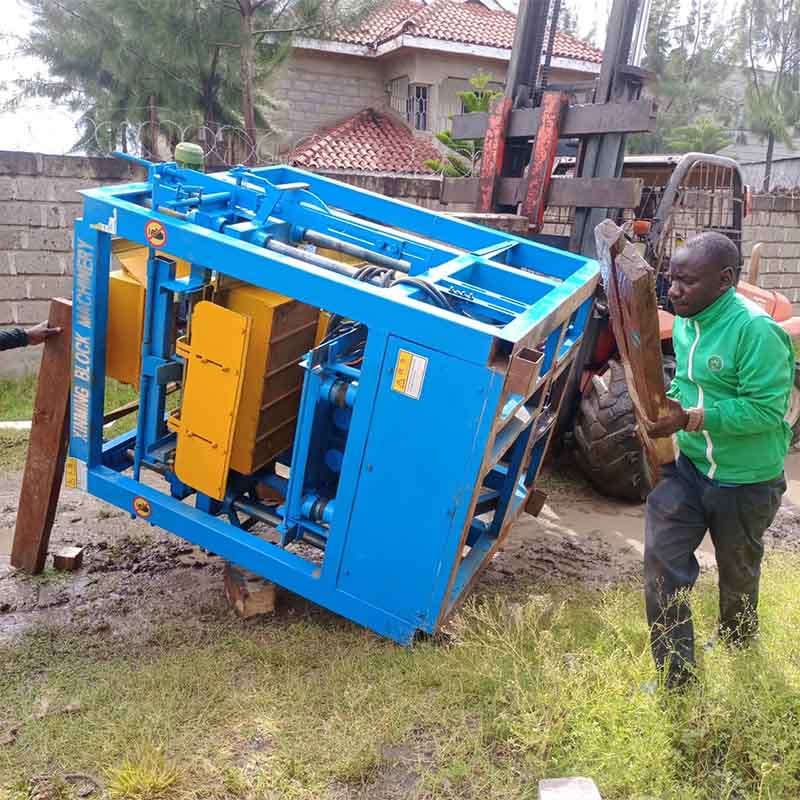
Title: Balancing Automation and Manual Labor in Block Production
Title: **Digital Supply Chain Integration in Full-Automatic Block Production**
Introduction:
In the era of Industry 4.0, where automation and connectivity are revolutionizing manufacturing processes, the integration of digital technologies into supply chain management has become imperative. One sector that has particularly embraced this digital transformation is the full-automatic block production industry. The utilization of advanced technologies in supply chain management not only enhances efficiency but also brings about a paradigm shift in how blocks are manufactured, distributed, and delivered. This article explores the various facets of digital supply chain integration in full-automatic block production and its impact on the industry.
1. **Automated Manufacturing Processes:**
Full-automatic block production involves the use of advanced machinery and robotics for the manufacturing of concrete blocks. These machines are equipped with sensors and actuators that enable them to operate seamlessly without human intervention. Digital integration in this context allows for real-time monitoring and control of the manufacturing processes. Sensors collect data on temperature, pressure, and other relevant parameters, providing valuable insights into the production cycle. This data can be analyzed to optimize manufacturing efficiency, reduce downtime, and improve overall product quality.
2. **Predictive Maintenance:**
One of the significant advantages of digital supply chain integration in full-automatic block production is the implementation of predictive maintenance. Sensors embedded in the machinery continuously monitor equipment health and performance. Through data analysis and machine learning algorithms, the system can predict when maintenance is required before a breakdown occurs. This proactive approach minimizes downtime, reduces repair costs, and ensures a continuous and efficient production process.
3. **Inventory Management and Demand Forecasting:**
Digital supply chain integration facilitates real-time tracking of inventory levels. RFID (Radio-Frequency Identification) and IoT (Internet of Things) technologies enable precise monitoring of raw materials, work-in-progress, and finished goods. This data is invaluable for demand forecasting, allowing manufacturers to optimize production schedules, prevent stockouts, and minimize excess inventory. The integration of AI algorithms enhances the accuracy of demand predictions by analyzing historical data, market trends, and other relevant factors.
4. **Smart Warehousing:**
In a fully integrated digital supply chain, warehouses play a crucial role. Smart warehouses leverage technologies such as automation, robotics, and AI to streamline the storage and retrieval of materials. Automated guided vehicles (AGVs) and robotic arms can efficiently handle the movement of blocks within the warehouse, reducing manual labor and the risk of errors. Additionally, smart warehouses are equipped with real-time tracking systems that enable manufacturers to monitor the movement of inventory from production to distribution.
5. **Blockchain for Transparency and Traceability:**
Blockchain technology is increasingly being adopted in supply chain management for its ability to provide transparency and traceability. In the context of full-automatic block production, blockchain can be used to create an immutable ledger of every transaction and movement within the supply chain. This ensures the authenticity of the product, prevents counterfeiting, and allows stakeholders to trace the origin of raw materials. Moreover, blockchain enhances trust and collaboration between different entities in the supply chain, fostering a more robust and efficient ecosystem.
6. **Real-Time Data Analytics and Decision-Making:**
The integration of digital technologies enables the collection and analysis of vast amounts of data in real-time. Advanced analytics tools process this data to generate actionable insights for decision-makers. In the full-automatic block production industry, real-time data analytics can be applied to optimize production schedules, identify bottlenecks, and enhance overall operational efficiency. This data-driven decision-making approach empowers manufacturers to adapt quickly to market changes and customer demands.
7. **Collaborative Supply Chain Ecosystem:**
Digital supply chain integration fosters collaboration among various stakeholders, including suppliers, manufacturers, distributors, and retailers. Cloud-based platforms and collaborative tools enable seamless communication and information sharing across the supply chain. This interconnected ecosystem promotes agility and responsiveness, allowing stakeholders to adapt to changing market conditions and customer preferences more effectively.
Conclusion:
The integration of digital technologies into the supply chain of full-automatic block production marks a significant leap towards a more efficient, transparent, and interconnected industry. Automation, predictive maintenance, smart warehousing, blockchain, and real-time analytics collectively contribute to the optimization of manufacturing processes, inventory management, and decision-making. As the industry continues to embrace these digital advancements, it is poised to witness further improvements in productivity, sustainability, and customer satisfaction. Digital supply chain integration is not just a technological upgrade; it is a fundamental transformation that redefines how blocks are produced, distributed, and consumed in the modern era of manufacturing.
